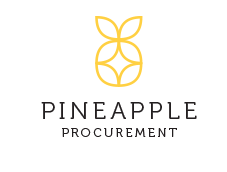AI in FF&E Procurement: Handy Helper, Not the Hero
AI is increasingly seen as a powerful assistant to procurement teams, helping manage the massive amount of data and decisions involved in FF&E projects. Below we take a look at its capabilities, its limitations in handling custom needs like one-of-a-kind specifications and vendor relationships, and how it aligns with current industry trends such as sustainability and supply chain shifts.
Looking specifically at soft brands in the 4-5 star segment (e.g. Kimpton, Marriott’s Autograph Collection, Tribute Portfolio, Hilton’s Curio Collection, or a Ritz-Carlton), each property has its own character and story. This individuality poses both challenges and opportunities for procurement given the custom nature of the specifications.
For all its capabilities, AI is not a silver bullet for FF&E procurement – especially in the nuanced world of custom hotel projects. Bespoke specifications often demand creativity, aesthetic judgment, and on-the-ground knowledge that AI cannot fully replicate. While AI can suggest materials or even generate design ideas from patterns it has seen, it lacks the creative intuition and context-specific insight of a human designer or buyer. Procurement veterans know that a boutique hotel’s identity can hinge on subtle details (a particular wood grain, the depth of real vs. faux finishes) – areas where human insight remains paramount. Over-reliance on algorithms could risk overlooking these subtleties, delivering a product that meets the spec on paper but misses the spirit of the design.
Vendor relationships in hospitality procurement are another area where AI faces limitations. High-end FF&E sourcing isn’t just a transaction; it’s built on trust, negotiation, and often years of collaboration. An AI tool might rank suppliers by price or performance data, but it can’t (yet) gauge a supplier’s reliability during a crisis or the rapport needed to navigate last-minute changes
Many FF&E vendors are smaller businesses who value personal connection. In practice, seasoned procurement professionals leverage these relationships to secure favors – rush an order, tweak a finish, or hold inventory – things an automated system might not achieve. Understandably, there is natural resistance to change among procurement teams who feel that AI could never fully grasp the relationship-driven nature of their work.
They have a point: algorithms don’t improvise well when a supplier’s truck breaks down or when a fabric batch comes out in the wrong hue and a quick human decision is needed.
AI recommendations are only as good as the data fed into them. In a custom hotel project, you may have limited historical data (since each project is unique) or scattered information across designers, contractors, and owners. If specifications change frequently or if a project involves an entirely new concept, the AI has little precedent to draw on. Hospitality procurement data can be “messy,” with everything from informal email quotes to varying format invoices – AI struggles when inputs are inconsistent or incomplete
Furthermore, AI trained on industry averages might default to recommending standard solutions, whereas a soft-brand hotel by definition seeks non-standard items.
Even in areas where AI helps, human oversight is critical. AI might flag an anomaly in a vendor bid or predict a delay in shipping, but a human needs to confirm and decide how to respond. For instance, if an AI tool suggests a cost-saving alternative for a light fixture, a procurement manager must verify that the alternative matches the design quality and brand standards. Quality control is a prime example: AI can track metrics, but it cannot travel to a factory to inspect the construction of casegoods or the pitch and comfort a chair. Maintaining high quality across a diverse range of FF&E items is a complex task that still requires human inspection and judgment – insufficient quality control can result in defective pieces or subpar finishes slipping through.
In luxury hospitality, those seemingly small defects can noticeably mar the guest experience.
Ultimately, successful FF&E procurement for one-of-a-kind hotels likely comes from a synergy of AI and human expertise rather than one replacing the other. If you’re planning an upcoming hotel or renovation and want to see this balance in action, we invite you to reach out.
